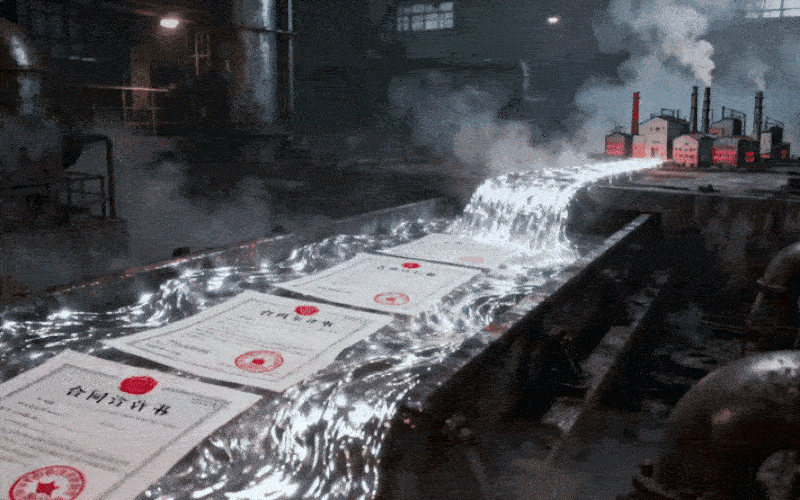On October 26, 2025, the Ministry of Commerce of the People's Republic of China ("MOFCOM") published Announcement 2025 No. 68, which lays out new, tightening export rules for tungsten, antimony – and critically, silver (白银) for the 2026-2027 period.
MOFCOM declares that in order "to protect resources and environment, and to strengthen management of rare-metal exports," it has formulated the "2026-2027 Annual Export, Application Conditions & Procedures for State-owned Trade Enterprises."
For silver export applications by state-owned enterprises, the criteria include:
Production Enterprises:
Must have independent legal person status; must have export performance of silver during 2022-2024 every year (or for new applicants from their qualification year to 2024). Additionally, new applicants must have annual silver production of at least 80 tons in 2024 (in Western regions the threshold is relaxed to 40 tons).
Trading/Distribution Enterprises (流通企业):
Also must have independent legal person status, have had actual silver export performance each year 2022-2024, and meet other corporate governance, insurance, certification (ISO9000/ISO14000) and legal compliance requirements.
The application and review process is centralized, enterprises apply via provincial/municipal level commerce departments, then MOFCON reviews, publishes a list for 7-day public comment, then approves & publicly posts qualified enterprises.
WHY THIS MATTERS
China is not just regulating silver – it is controlling the upstream gatekeeper. With these rules MOFCOM is going two things:
- Explicitly limiting and qualifying who may export silver via state-owned trade companies – meaning the Chinese government retains tight control over silver flows from China to the world.
- Setting production thresholds and past-export performance requirements means that only a small set of large, qualified enterprises are in the export game, which gives Beijing leverage.
Put plainly, China is moving to manage silver as a strategic resource, and not leaving it up to open market forces, and that has HUGE implications for Western military, energy, and supply-chain planners.
WHY SILVER IS A NATIONAL SECURITY CRITICAL MATERIAL
Because this announcement might feel arcane, let's draw the line: silver is deeply embedded in advance weaponry, space systems, power grids, satellites, semiconductors, solar energy and defense electronics.
According to our past research:
🎯“Silver powers the silent engines of war—torpedoes, submarines, drones, missiles, satellites… militaries consume hidden tonnes of silver, masked in ‘electronics’ …”
🎯The United States Geological Survey (USGS) model for the 2025 Critical Minerals list recommended adding silver because of elevated U.S. import-dependency, single-point failures in supply, and expected GDP impact from a disruption.
🎯Silver-zinc and silver-oxide batteries still power space- and defense-critical systems. Submarines, missiles, satellites rely on silver contacts, plating, solder, RF interconnects.
Silver is the most effective choke-point, if you're looking at device failure risk during war.
What China’s Move Means for the West (Especially the U.S.)
🩸Supply Chain Leverage
China's export regime means that the West is going to face gate-keeping not just scarcity. If Beijing chooses, silver exports could be delayed, curtailed, or routed under Beijing's political terms. The requirement that only qualified, large state-owned trade companies may export means fewer alternative channels for global consumers.
🩸Strategic Reserve Vacuum in the West
The US has long since liquidated its strategic silver stockpile. At the same time, US industry and military remain heavily reliant on imported silver and global refining capacity that sits out the US. If China decides supply-flows matter, you're starting the war already disadvantaged.
🩸Military Consumables Burn Faster Than Replenishment
Modern wars (and especially a peer-adversary war such as with China) will see intensive use of guided weapons, radars, satellites, drones, interceptors: all of which consume silver via electronics and power systems. Even with aggressive production ramp-up, replenishment timelines stretch years.
🩸Energy-Grid and Clean-Tech Exposures
Silver is a key input in solar photovoltaics, high-capacity battery systems, super-conductors, conductive coatings for clean power and military infrastructure. Thus it's not just fighter jets and missiles; it's also the resilience of power girds, communication networks and base infrastructure.
The Western Alarm Bell: It’s Go Time
This is not academic. This not "maybe in the future." The facts:
💥China is formally regulating silver export eligibility in a way that gives it strategic control.
💥The US/West do not currently have the strategic reserve buffer needed for a supply shock in silver.
💥With war-fighting shifting to technology-heavy, network-centric systems, silver is the silent enabler, not the luxury metal of decades past.
If we wait, the West will discover that the next conflict doesn't just burn stockpiles of missiles – it burns metals we can't get.
Immediate needed policy actions:
🦾Classify silver explicitly as critical strategic material across defense/energy sectors. The USGS technical recommendation is a start.
🦾Establish a Strategic Silver Reserve: analogous to oil reserves, but for silver. Buy refined metal, secure domestic refining capacity, pre-position stockpiles.
🦾Mandate allied supply-chain diversification: secure bilateral offtake deals with Australia, Canada, Mexico, Peru, etc.; reduce dependence on any single exporter or refining hub.
🦾Prioritize silver-intensive components in defense acquisition: when weapons and systems are procured, ensure that silver usage is accounted for, alternative materials considered, and recycling/secondary sourcing built in.
🦾Prepare export control and industrial policy frameworks: If China is using export eligibility as leverage the West must deploy its own industrial policy to ensure access to domestic refining, raw-materials and prioritize military use.
The West Can’t Afford Complacency
All in the West must wake up to the reality that silver is not just a commodity for investors. It is a national-security linchpin. China's Announcement No. 68 reveals a strategy to treat silver as a state-managed resource with export controls and eligibility thresholds.
Meanwhile, the West has, until recently, acted as though silver supply is endless and risk-free.
If war comes, if a supply-shock hits, the question won't be "Do we have enough bullets?" – it will be "Do we have enough silver to power the guidance systems, the pilot's helmets, the munitions and the satellites overhead?"
It's Go Time, Uncle Sam.
Secure the silver. Or admit defeat.


